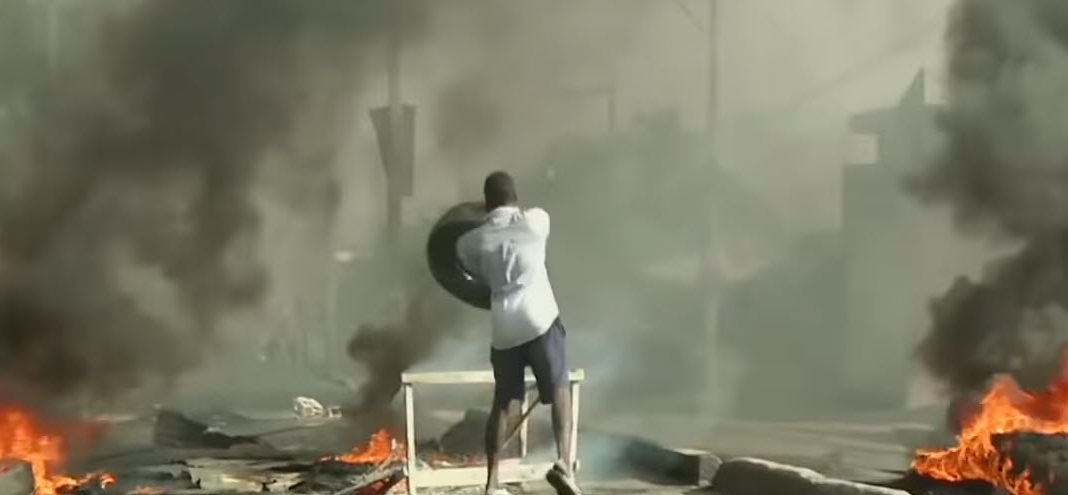Who foots the bill?
The problem stems from the lack of consistent information. Agencies like the IMF claim that it’s the rich who profit from the big fuel subsidies, not the wider population. But many Haitians, including some politicians, say that it’s ordinary people who will foot the bill for higher fuel costs. When the government announced the increase, there was a lack of coordination among different state bodies, and the police were not prepared for the protests that resulted, or for the levels of anger among different stakeholders. The levels of violence that followed are regrettable. But one of the most important factors is the startling levels of inequality in Haiti. Many citizens feel disillusioned and powerless to bring about any positive change in the country. It’s like a ticking bomb that could explode at any time. The fuel protests signal the start of a big shakeup in Haiti that will either advance our national reconstruction efforts or deepen the crisis further. I believe it is more likely to deepen the crisis than resolve our problems, because people are too nervous and angry, which will make it difficult to find effective solutions. Clearly the IMF and the international community play an important role in Haiti. The IMF has been advising the country on how to get our economy on track. One factor is petrol: by removing the fuel subsidies the government hoped to make citizens pay more, and in doing so generate sufficient funds to implement its activities and budgets. (A new budget was presented to Parliament at the end of June, currently under review). However, some people here in Haiti are urging the government to prioritize other measures, such as cutting costs and reducing waste in management (for example, in sub-contracting, use of consultants, purchase of vehicles, petrol allowances, etc.). Some critics argue that instead of looking to increase taxes, the government – and the legislature – should reduce their expenses. Most ordinary people believe that there is too much corruption in Haiti. The President once mentioned that Haiti has five big problems: ‘corruption, corruption, corruption, corruption and corruption.’ Some action has been taken to tackle this, but not enough.Divided opinions
This subject is very divisive within our society. There are even different stances among the local partner organisations supported by Christian Aid. A number of our partners have expressed some scepticism: they believe – rightly – that we need more accountability. If Haitians see more accountability from the government, they may then refrain from taking to the streets in anger. Some Christian Aid partners want the IMF to stop interfering and pushing the Haitian government to increase fuel costs. Meanwhile, some networks of local and international organisations have denounced the IMF’s stance and its methods of working in Haiti. The country has lost more than $30m during the two days of unrest, and they don’t believe the promised $100m-$300m from the IMF will reach Haiti’s economy. Even the UN representative responsible for poverty reduction in the country has some reservations. Right now, the government is looking for every way to increase its revenue: it is working on increasing the tax on imports coming from neighbouring Dominican Republic, and exploring the potential of additional taxes within the Electricity Bill.Looking to the future
My personal view is that Haiti needs to find the right direction. Our leaders and people from across society need to sit down together and talk. Haiti has approximately $2bn of debt – urgent steps are needed to improve the situation of our poorest, most marginalized citizens, and at the same time create the right environment for business to flow, to create jobs and wealth. At present, people are tending to concentrate too much on the problems and dangers Haiti confronts. Certainly the Government needs to show more transparency in the management of its modest resources. But it’s time for people to see the potential for creating wealth from this situation: not wealth for individuals, but wealth for the wider population, to reduce inequality, poverty and social exclusion. Right now, the president is trying to find a new Prime Minister, consulting different stakeholders in the political arena. Regardless of who replaces Jack Guy Lafontant, it’s important for our leaders to ensure that people understand that this situation can’t be resolved in a day. It is a long, long fight and leaders need to be focused, efficient and transparent in their management of resources. They need to think about the end before they begin: they need to know where they want the country to be, and what steps they need to take, to ensure Haitians are left in a much better situation 5-10 years from now.Prospery Raymond is Christian Aid’s Country Manager for Haiti and the Dominican Republic. He lives in Port au Prince. For more on Christian Aid’s work in Haiti, see here.


